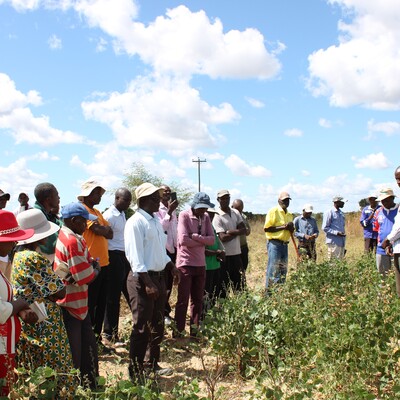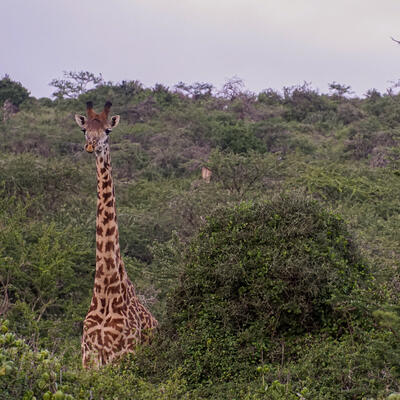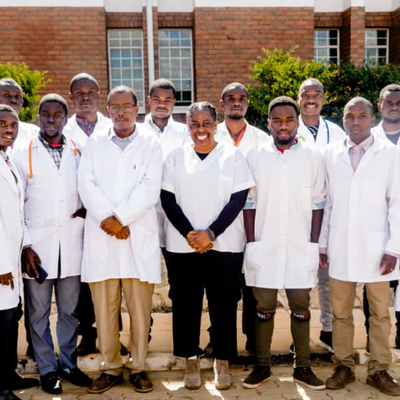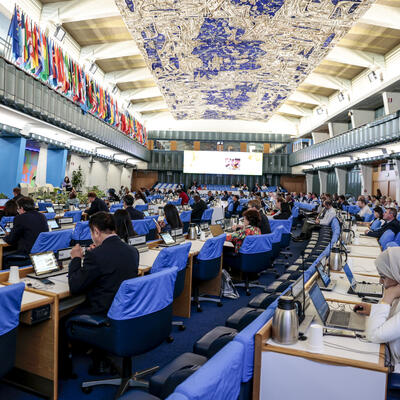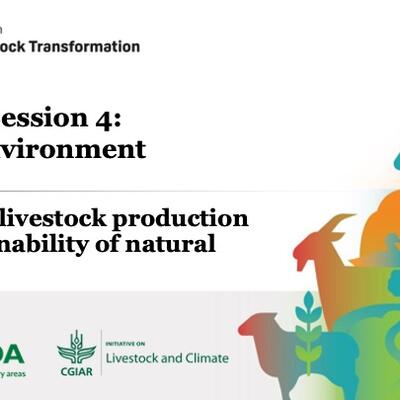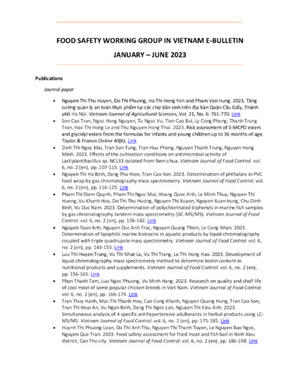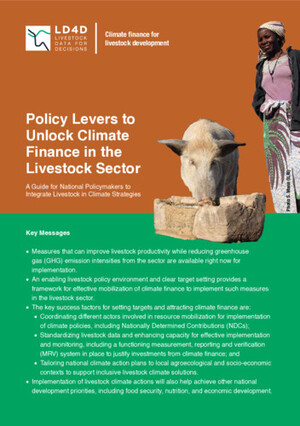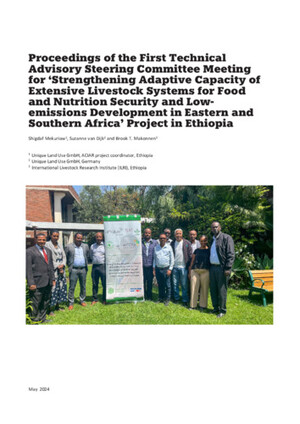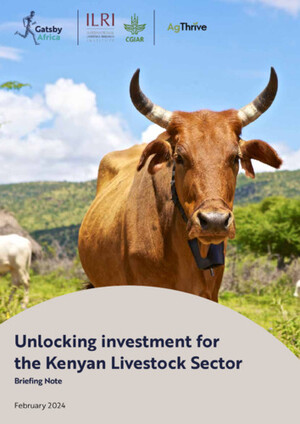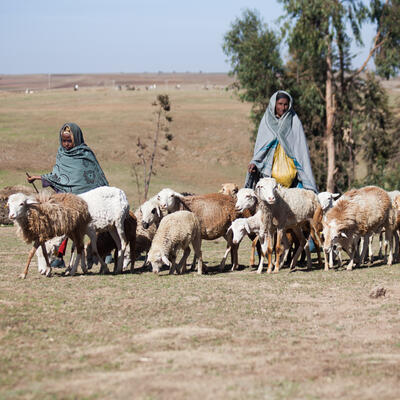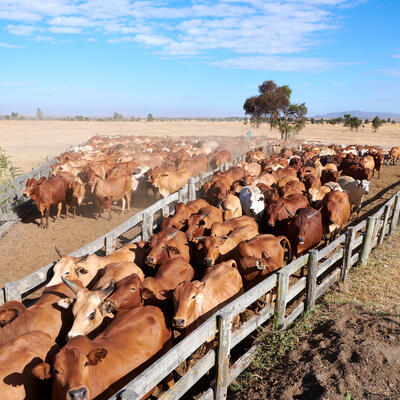
Four ILRI fellows attend World Food Prize symposium (virtually)
By Timothy Offei-Addo
Four fellows from the International Livestock Research Institute’s (ILRI) CapDev Grand Challenge attended this year’s virtual World Food Prize symposium from 12–16 Oct. The symposium addresses cutting-edge issues in food security and nutrition and is widely considered one of the premier conferences in the world on global agriculture.
The four fellows who attended the event were winners of the 2019 CapDev Grand Challenge, a 10-month long capacity-strengthening process for ILRI fellows. The fellows take part in workshops and trainings to enhance their scientific writing, their presentation and management skills, and their ability to communicate their research to decision makers and funders. The four winners were chosen from a class of over 40 ILRI fellows, and represented a wide array of research topics:
• Laura Cramer is a PhD fellow from Wageningen University working with Todd Crane in the Sustainable Livestock Systems program. Her research focuses on the science-policy interface and explores the ways that researchers and decision makers frame issues around livestock and climate change.
• Desalew Tadesse Tegegne is a PhD fellow from Addis Ababa University working with Olivier Hanotte in the Livestock Genetics program. His research focuses on improving the omega-3 fatty acid content in eggs and chickens and aims to address nutritional shortcomings in the human diet.
• Daniel Korir is a PhD graduate fellow from the University of Melbourne working with Svenja Marquardt in the Sustainable Livestock Systems program. His research focuses on quantifying greenhouse gas production from cattle production systems in East Africa and exploring some of the nutritional options that we can tap into to decrease emissions.
• Walter Mangesho is a research fellow from the Tanzania Livestock Research Institute (TALIRI), working with Sita Ghimire in the Biosciences eastern and central Africa (BecA)-ILRI Hub. His research focuses on morphological and genetic characterization of a local grass known as Brachiaria, contributing to increased livestock productivity.
The four fellows were delighted to attend the conference. It exposed them to the broader community of research and gave them access to important professional networks.
This year’s conference was titled ‘Breaking new ground: Building resilience today for improved global food system tomorrow, and focused on addressing climate change, equity and access, investment, and nutrition and finance. Each of the fellows attended several sessions, listening and engaging with different topics. Korir attended a diverse assortment of sessions including one on the role of media in shaping public engagement in food systems and another on unlocking scale in Africa’s agricultural systems. Several of the sessions and discussions focused on the impact of Covid-19 on food systems.
International exposure is a key piece of the CapDev Grand Challenge, says Wellington Ekaya, ILRI’s head of capacity development and the chief architect of the CapDev Grand Challenge. ‘For researchers to succeed in influencing decision makers they must, in addition to effective communication, know how to build networks and partnerships both within and outside of their own workplace and discipline and look for support and allies internationally. Creating and working in teams and becoming a good partner means reaching out and not waiting for others to look for you. It also means being well-informed of relevant global issues and dialogue. The World Food Prize convening is one global event that presents an ideal platform for next-generation researchers.’
The three-day event culminated in the award of the 2020 World Food Prize to Rattan Lal, an Indian soil scientist focused on regenerative agriculture, who discussed his research on soil health with former US Vice President Al Gore. The fellows were thoroughly impressed with Lal’s presentation and his enthusiasm.
Two quotes, one from Cramer and another from Korir capture the value that attending the World Food Prize Conference brought to the winners of the CapDev Grand Challenge:
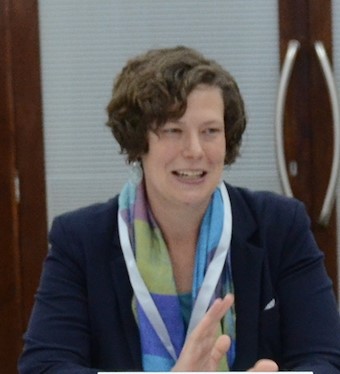 Laura Cramer (photo credit: ILRI).
Laura Cramer (photo credit: ILRI).‘I tuned in to the presentation of the 2020 Borlaug CAST Communication Award won by Alexa Lamm of the University of Georgia. Her talk was entitled “Communicating science during times of crisis”. I really appreciated this session the most, because the CapDev Grand Challenge has really focused my attention on how we communicate science. This relates to my research on engagement with policymakers, but I’m also becoming more interested in science communication in general…I enjoyed her talk also because of the use of visuals on her slides—another important point on good communication. Her four specific messages were: (1) know your audience; (2) tailor the messages and avoid jargon; (3) use the right channel for your audience; (4) mirror your audience to build credibility and trust. She has done excellent research on what works best for communicating science, and it made me wonder whether there are similar research findings for audiences in developing countries.’ – Laura Cramer
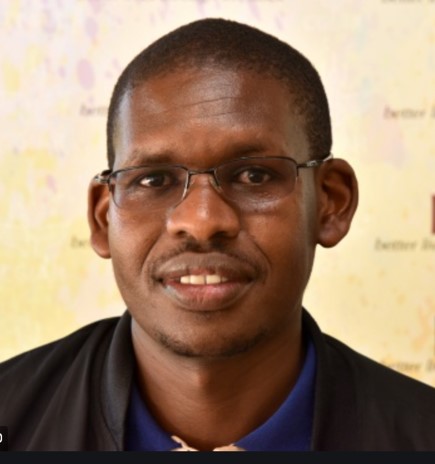 Daniel Korir (photo credit: ILRI).
Daniel Korir (photo credit: ILRI).‘Two [keynote] speeches have kept me thinking of how I can break away from one stream thinking along my core science field and start approaching challenges in a more wholistic and inclusive perspective. I can imagine the synergy and hence the impact it would have on smallholder productivity if veterinarians, animal nutritionists, soil scientists, agronomists and social scientists all worked as a team rather than as competing entities. One message that still rings loudest in my mind from the dialogue is that food is a moral need for all those who are born into this world and therefore we need to be more innovative as we bring everyone on board in the discussion of how we can improve productivity going into the future in the face of climate change.’ – Daniel Korir






